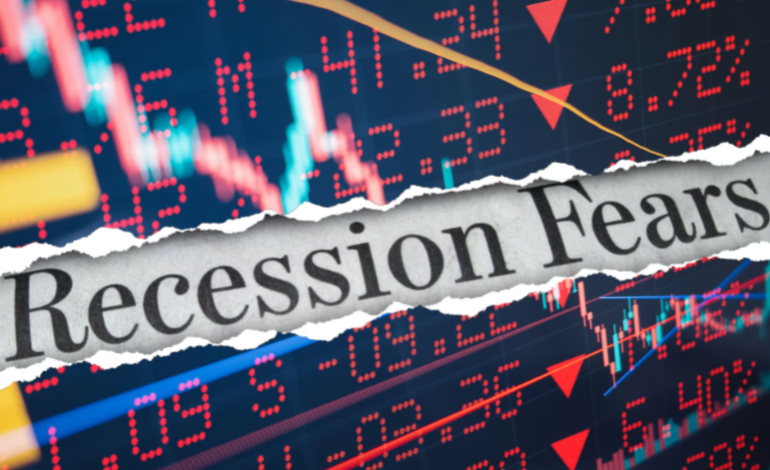The US economy is showing signs of softening, raising concerns among investors about the possibility of a recession.
Despite efforts by the Federal Reserve to guide the economy toward a “soft landing” while curbing inflation, recent data suggests that economic conditions may be more fragile than previously thought.
The stock market has been particularly sensitive to economic news. Early August saw investor fears spike when July’s jobs report revealed a rise in the unemployment rate to 4.3%, triggering the Sahm rule, which often signals the onset of a recession. This prompted a major selloff across US indices, including the Dow Jones Industrial Average, S&P 500, and Nasdaq Composite, which fell significantly over two trading days.
“The unemployment rate is increasingly becoming a key focus for investors,” said Matt Stucky, chief portfolio manager of equities at Northwestern Mutual Wealth Management.
More recent data has continued to fan these concerns. The Institute for Supply Management (ISM) reported that the manufacturing sector has been contracting for five consecutive months, highlighting a persistent slump. Additionally, ADP’s employment data for August showed a slowdown in hiring, with only 99,000 jobs added—down from 111,000 in July. This marks the slowest pace of job growth since early 2021.
Investors are now waiting for the release of Friday’s US employment report, which could have significant implications for the markets. The consensus expectation is that unemployment will be around 4.2%. A higher-than-expected figure may further unsettle investors, while a figure in line with expectations may still leave some on edge.
“Friday has all the makings of an exciting morning as the market digests the August employment report ahead of the Federal Open Market Committee meeting,” noted Joe Davis, Vanguard’s global chief economist.
Recession fears have also been stoked by the latest Fed Beige Book report, which indicated flat or declining economic activity in nine out of twelve districts. The slowdown has been particularly evident in consumer spending and manufacturing, two sectors that are critical to overall economic health.
Although the Federal Reserve has hinted at potential rate cuts, some market watchers are concerned that the timing of such moves may not be sufficient to prevent a deeper economic downturn.
“Even if the Fed reacts aggressively, it might be too late to stave off real economic weakness,” observed Steve Sosnick, chief strategist at Interactive Brokers.
With input from Market Watch, Newsweek, and the Acquirer’s Multiple.









